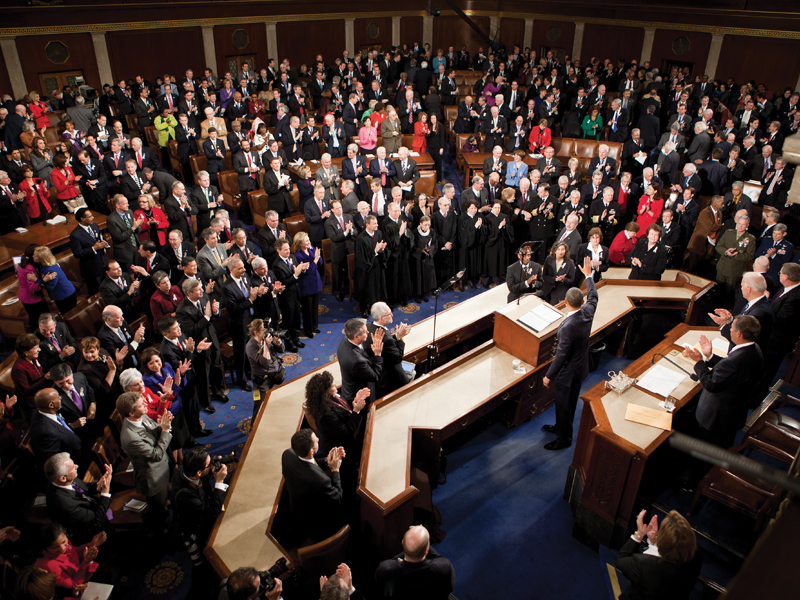
President Obama used his State of the Union address last Tuesday to bounce back from a forgettable 2013 and ask the joint session of Congress to restore America’s promise of opportunity.
Voicing his dissatisfaction with lawmakers’ recent productivity, the president vowed that “wherever and whenever (he) can, (he) will take steps, without legislation, to expand opportunity for more American families.” In the coming weeks, he plans to file an executive order that will have federal contractors raise their employees’ wages to at least $10.10 an hour in order to address the nation’s growing wealth inequality.
This executive action will only apply to federally funded employees, but the president asked business leaders and state governments not to wait on Congress and enact their own wage-raising legislation. Praising the five states that passed laws last year to raise their minimum wage, the president called for governors, mayors and state legislators across the country to follow their lead and make sure that “no one who works full-time should have to raise their family in poverty.”
With the minimum wage worth 20 percent less than it was when president Ronald Reagan first took office in 1981 due to inflation, an increase is imperative. According to research by Professor G. William Domhoff of the University of California, Santa Cruz, the top 1 percent of wage earners own 42 percent of all the financial wealth in America while the bottom 80 percent of wage earners control only 5 percent of the nation’s wealth. While the top wage earners have never been better off, the middle and lower class have been left in the shadows. According to public policy organization Demos, some economists have stated that the president’s minimum wage increase will boost consumption levels since low-wage workers are much more likely to use their additional income on consumption goods than any other income group.
President Obama was bold in his demands and showed no hangover from his lackluster 2013 performance. Coming off the least productive year of Congress’ history, the president showed up to Capitol Hill with a vision of economic justice and social mobility. Just as he successfully spearheaded the issues of increasing healthcare costs and gender-wage discrimination in his first term, the legacy of his second term will be defined by his efforts to address and act upon the expanding wealth inequality gap in America and fixing this nation’s broken immigration policy.
The president personified the “American Dream” through the humble beginnings of himself and House Speaker John Boehner and appealed to Congress to bring an immigration reform bill to his desk by the end of 2014. With bipartisan immigration legislation passed by the Senate last June, he was optimistic that he would see similar cooperation in the House of Representatives in 2014 that would reduce the deficit by $1 trillion in the next two decades.
Similar to his inauguration speech in 2013, the president showed faith and confidence in the middle class, and endorsed extending unemployment insurance that Congress just recently cut. He discredited the notion that all recipients of these benefits are dependent on government, illuminating that many unemployed workers had been employed their entire adult lives but had their jobs taken victim by the recession. Extending unemployment benefits for individuals will allow the unemployed and their families to continue to pay their mortgages and debts while searching for high quality jobs that fit their skills and interests.
Last Friday, the president took proactive steps toward reaching the goals he outlined in his address and announced that the White House will partner with large corporations such as Apple, Wal-Mart and Ford to help the long-term unemployed find jobs. Creating a higher-trained, more educated workforce will decrease unemployment and poverty rates while increasing median income levels. With more revenue being collected and less being transferred back to citizens through government assistance programs, the deficit will shrink and bypass the slow process of passing legislation.
President Obama has entered 2014 the same way he entered 2009, with progressive goals to boost the economy. He has made clear that he would not allow a repeat of Congress’ regretful 2013 by threatening to take executive action if legislators cannot cooperate with each other in the months ahead.








